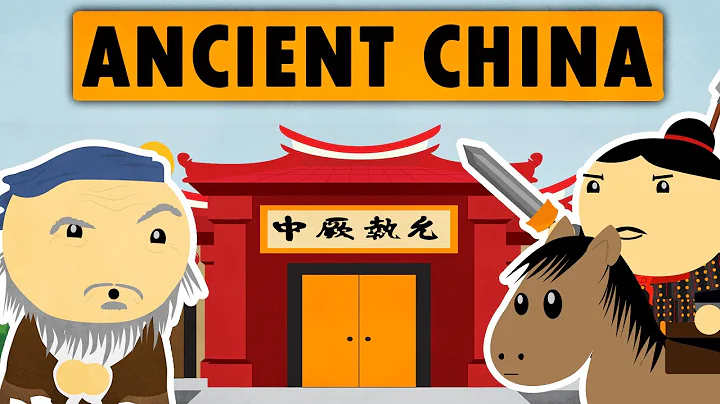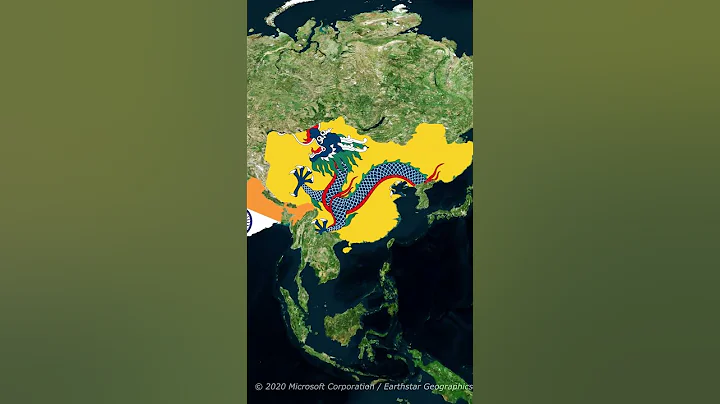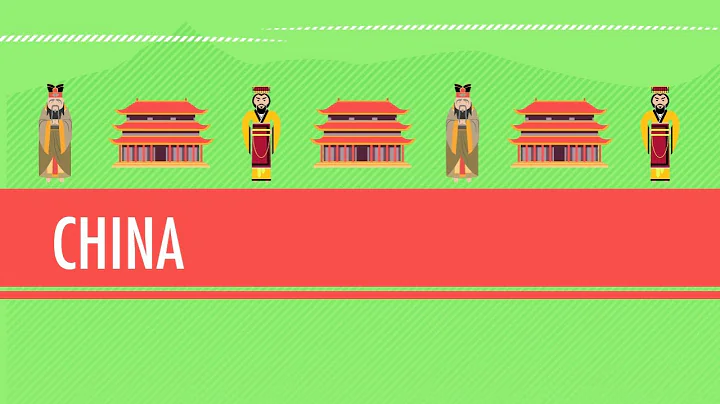The Qing Dynasty, as the last feudal dynasty in the history of our country, was established by the Manchus , so their living habits and ways of addressing themselves were very different from those of the traditional Han people. For example, they like to braid their hair and call them money rat tails . The aristocrats, as the core group of the ruling class, also call themselves children of the Eight Banners.

Old photos of the Eight Banners Disciples
With the fall of the Qing Dynasty, these Eight Banners Disciples of the Manchu and Qing aristocrats had to return to the common people, disappearing from the public . So, what kind of life do the descendants of the Eight Banners live today? It is said that the descendants of Heshen, the great corrupt official of the Qing Dynasty, were found in Lalin City, Heilongjiang Province. Although they have become farmers, they still retain the traditions of their ancestors. This is What's going on?
Children of the Eight Banners
First of all, let us take a look, what are children of the Eight Banners?

Jurchen portraits
As we all know, the Manchus are Jurchens. In distant Manchuria, the Jurchen tribe makes a living by hunting and hunting, and their development is slow. It was not until the Southern Song Dynasty that Wanyan Aguda unified all the Jurchen tribes, and the Jurchen tribe had their own kingdom for the first time. After that, in line with the yearning for the prosperous Central Plains, the Jurchens began the process of conquering the Central Plains . Therefore, starting from the Yuan Dynasty, the Jurchens launched their invasion of the Central Plains.
It was not until Wu Sangui opened the gate of Shanhaiguan that the Jurchen tribe officially marched in, defeated Li Zicheng, and established the Qing Dynasty . At this time, Nurhaci, the leader of the Jurchen tribe, became the founding emperor of the Qing Dynasty - Qing Taizu. After the establishment of the Qing Dynasty, it was customary to appoint officials to the founding fathers who fought together to conquer the country. As a result, Eight Banners noble children came into being.

Qing Taizu Nurhachi
At first, in order to facilitate management and distinguish these nobles, Nurhaci set up a four-color flag, namely , yellow, white, red, blue and . However, as the nobles spread out and their population size gradually increased, the four colors seemed to be insufficient. So Nurhachi further subdivided it and added four flags, namely: bordered with yellow, bordered with white, bordered with red, and bordered with blue. Since then, the Eight Banners system has taken shape.

Flags among the Eight Banners
These flag systems were originally created to facilitate the division of labor and cooperation of the Jurchens during hunting (similar to the top, middle, and bottom lanes in war). Later, as the Jurchens' aggressive wars continued to expand, this system gradually evolved and served military warfare , thus greatly increasing the Jurchens' combat effectiveness.
It is worth noting that before the Qing army entered the Pass, only the Zhenghuang Banner and the Xianghuang Banner were directly commanded by the emperor. It was not until the Shunzhi period that he also received Dorgon's Zhengbai Banner into his own hands. Over time, , Zhengbai also became a flag directly commanded by the emperor. Therefore, the Zhenghuang, Xianghuang and Zhengbai commanded by the emperor became the upper three banners with the highest status among the eight banners, and the rest were the lower five banners.

The Complete Eight Banners
As a descendant of the Eight Banners, the privileges and benefits that can be enjoyed are quite generous. After entering the customs, the Qing court formulated a series of preferential treatment policies for the children of the Eight Banners. It stipulated that the status of the bannermen was higher than that of the Han people, and the bannermen could only work as royal errands, doing some decent leisure work that received imperial food. Bannermen who worked in the palace would receive rewards from the emperor and concubines from time to time, and those bannermen who left the palace and had no jobs would also be supported by the court and receive "monthly money" free of charge.

Complete Eight Banners
When the Eight Banners goes to war, these Eight Banners children can also receive " double wages" , and even their family members can enjoy corresponding benefits and receive royal rations. In addition, the children of the Eight Banners also had a large amount of hereditary land allocated by the imperial court. Even the most ordinary low-class children of the Eight Banners could be allocated more than ten acres of land. Once they had land, these bannermen would rent the land to Han tenants for farming, while they themselves would collect the land rent and become "Eight Banners Landlords".
It is no exaggeration to say that from birth to death, all the expenses of the Eight Banners throughout their lives were borne by the state, they enjoyed extremely generous welfare benefits, and had a happy life that ordinary Han people could not even imagine. However, the silver used to support the children of the Eight Banners was extracted from the taxes of all citizens except the bannermen. In order to support this growing group of children of the Eight Banners, the burden on the shoulders of the people of the Qing became heavier and heavier.

The idle Eight Banners children
This exploitative system, which ensures the enjoyment of a small number of aristocrats by sacrificing most of the interests of the general public, is destined to be resisted by the people, and the enjoyment and welfare of the Eight Banners children also makes them gradually move towards themselves. Destroy . After living a life of arrogance and luxury for a long time, these Eight Banners disciples have become worse with each generation. They have no knowledge of martial arts. Because the Eight Banners disciples do not have to pay for their lives, many Eight Banners disciples do whatever they want and do all kinds of evil things.
Until the end of the Qing Dynasty, the decadent and mediocre Qing court was no longer able to compete with the eager Western powers. Although there are millions of Eight Banners disciples, their perennially prosperous life has made them even more lazy. They are simply unable to confront the armies of Western powers, and they can only watch the Qing Dynasty perish.

Where are the idle disciples of the Eight Banners
Where are the disciples of the Eight Banners today?
After the fall of the Qing Dynasty, the Eight Banners children could no longer receive preferential policy treatment and could only find their own way out. And how do these Eight Banners disciples, who are used to living a life where they can only stretch out their hands for clothes and open their mouths for food, make a living? This has to mention a Qing Dynasty archive titled "Original Case of Lalin Alchukhaking Banner" .
Lalin is the birthplace of the Manchus. Since the Qing army entered the Central Plains, both the Central Plains and Jiangnan have developed very well, but Lalin is still extremely desolate. Qianlong suddenly had a whim and wanted to make Lalin, the birthplace of his ancestors, as prosperous as Jiangnan, so he ordered 3,080 bannermen to go north to Lalin to guard the northeastern border and open up wasteland at the same time.

The disciples of the Eight Banners who competed in riding and shooting.
Among the three thousand disciples of the Eight Banners, there were members of Suo'etu, Heshen and others.. After arriving in Lalin, they established twenty-four banner villages based on the positions of each banner, which were historically known as "Twenty-Four Banner Tunnels in Beijing". In order to open up wasteland, these Eight Banners children had to learn to farm, and at the same time, they had to be constantly wary of threats from the northeastern border. They were both soldiers and farmers, and the conditions were very difficult. The hardship has also allowed the children of the Eight Banners here to pass on the livelihood skills of farming from generation to generation.
After the fall of the Qing Dynasty, a large number of Eight Banners disciples fled here. They learned the skills of farming and farming from the older generation of bannermen and settled here. Time has passed, and the children of the former Manchu nobles have now become ordinary peasants, with their faces facing the loess and their backs to the sky, but they have never forgotten the history of their family.

Today's descendants of the Eight Banners
The descendants of the Eight Banners still retain the ancestral tradition
In Lalin, the old man He Yuqi, who is over seventy years old, is the twelfth generation grandson of Suo'etu. , all the elderly in the same village have no doubts about this. He said with envy: " If this was during the Qianlong period, Lao He would be the authentic Yellow Flag Beile." But now, He Yuqi is just a seemingly ordinary old farmer who will go to the countryside with his fellow villagers in his spare time. Playing chess and smoking dry cigarettes, only the glory of his ancestors revealed while talking and laughing still showed his seemingly extraordinary "noble" bloodline.

Old farmers talk about the glory of their ancestors
As for The descendants of the corrupt official Heshen, and Yingqi, are now just ordinary farmers. Although their ancestor was a corrupt official and ended up having his family confiscated, He Yingqi and other Heshen descendants are still proud of their prominent status. They follow the ancient traditions of the Qing Dynasty and hold weddings and funerals in strict accordance with the Manchurian rules. The clear ceremony process is carried out in , and the scene is very grand.
Not only that, "Drink bean juice in May, eat frozen dumplings in the first month, and call the spoon " These Manchu customs have also been passed down in Lalin.Therefore, most children born in Lalin have a strong sense of family honor. Every New Year's Eve, no matter where they are, future generations will rush back to their hometown to worship the "big shadow", which is what we call sacrifice. Worship ancestors , and "big shadow" refers to the tablets and portraits of ancestors.

The scene of worshiping Daying
It is worth noting that with the passage of time, only the portraits of and Shen are the authentic Daying that have been preserved, and those of other families are "fake" that were copied later. The visit of the big shadow is also very particular. According to the Manchu custom of respecting the west, the big shadow of the ancestor is hung on the west wall. If there is a fire kang on the west wall, no one can sit on it, otherwise It would be considered disrespectful to the ancestors.

He Shen's portrait
It can be seen that today's Eight Banners children, although their privileges and glory have faded, they still inherit the traditional customs and etiquette inherent in the family, so that they have formed a unique "Beijing Banner Culture ", making it shine brightly in Chinese culture.





















